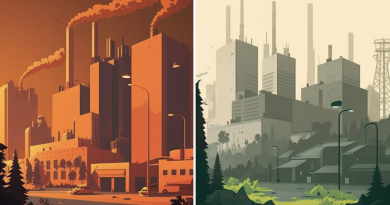Is COVID C-OV-er? In the US, maybe. There’s a Big “But.”
Last year, I enjoyed reading all of the vitriol on Twitter– in another lifetime, before Donald J. Trump got permanently banned for inciting an insurrection at the US Capitol that left five dead- about how Michigan was a prison given the governor’s draconian lockdowns. I especially enjoyed reading these tweets along with a beer on a patio in the sunshine. Some prison! Anyway, the impressive rates of vaccination are leading some to wonder whether we may actually get back to normal one of these days! We may, in fact. But there’s one thing we need to stay focused on, and that’s the prevalence of virulent strains in, well, the rest of the world. We can’t beat the ‘rona unless we make a concerted effort to vaccinate everyone. Like… in the world. And here’s why.
The Post-COVID Recovery
If you read happy-go-lucky sources like Yahoo News’ Brian Sozzi or Sam Ro, all is well, and the vaunted recovery will bring sunshine and rainbows for everyone. Trees will grow to the moon, and every child will receive Bitcoin in their stocking for Christmas. These are, of course, a bit, well, off. The US has deployed an impressive vaccination apparatus. But the idea of “economic recovery” is at odds with the fact that a double-digit percentage of Americans still face substantial disruption to their daily lives and, importantly, consumer habits. Trillions of dollars in stimulus spending will inevitably cause inflation. Supply chains are still completely screwed. Recovery optimists have pointed out that the institutions that struggled effecting the 2008-2010 crash are not struggling, so the idea of a systemic collapse of any sort is rather unlikely. That’s all well and good. But it’s not really the biggest issue here.
But international trade is, like death, taxes, and Shen Yun posters, an inevitability. Trade translates to transmissible disease, same today as it did five hundred years ago.
COVID Around The World
Nay, economic recovery of the entire global economy necessitates public health recovery of the entire global economy. The US can vaccinate all it wants. But COVID vaccine distribution in other countries has lagged as a matter of limited supply and inadequately developed infrastructure. The big-uns: Brazil’s economy is near collapse if it can’t get the virus under control. India is experiencing exponential growth. Both countries opened up their economies– to disastrous effect. Incidentally, but perhaps unsurprisingly, the executive leadership of India, Brazil, and the US– before January 2021- have all featured crazy right-wingers who have tried to downplay the severity of the virus. Modi’s government has done this in the past week as Indian states have lamented vaccine shortages.
Bolsonaro, well. A bunch of his own government has resigned in protest of his mishandling and cavalier dismissal of COVID. The self-styled autocrat is now butting heads against the country’s court system as well as its military. Death rates are sky-high, and it’s possible that the country’s total death toll could double in the next two months if aggressive steps are not taken.
And meanwhile, the more aggressive and virulent COVID variants have just been detected in China last month. This suggests that more are to come, even if that country’s testing apparatus is pretty aggressive. Sure, that whole centralized autocratic power thing shore don’t hurt, neither! But international trade is, like death, taxes, and Shen Yun posters, an inevitability. Trade inevitably to transmissible disease, same today as it did five hundred frickin’ years ago. It’s also a good illustration of the notion of contagion– literal or metaphorical- within the global economy.
Why Should We Care About The Rest Of The World? Externalities! That’s Why!
One of the biggest rallying cries among the Trump people was their apparent hatred of people from other countries. Come here legally! Okay, I did! Well, we want fewer of your kind! Or a distaste for the idea of foreign aid (except to Israel, of course, that’s fine, I guess). If you don’t care about human beings– which many of these people clearly don’t- at least care about the economic externalities. If COVID continues to undermine foreign economies, it’s going to undermine the US economy, too.
In economic terms, if the rest of the world gets screwed by something, the US gets screwed, too. This isn’t new. In the Cold War, strategies of US interventionism in an endless and fruitless series of proxy wars focused on the notion of the domino effect. During the Eurozone crisis, we kept hearing about financial contagion. But global supply chains have never been as interdependent as they are today, as proven by that big boat that is still stuck in the Suez Canal. (Maybe that’s where my knockoff Legos from AliExpress are).
Reducing Market Externalities, Or Just Being A Decent Human Being
Former UK Prime Minister Gordon Brown made a recent plea to vaccinate the world from a humanitarian standpoint. If you can’t get behind the humanitarian side of things, at least consider the potential effect of a de facto collapse of one of the largest global economies on the US economy. Are we out of the woods in the US? It would seem that the US is, for the most part, on track (Michigan is again a train wreck– or, I guess you could say, a car wreck, since we don’t have trains- but what else is new?). But distribution of the COVID vaccine in other countries has to be concerted, aggressive, and fast.
It is not enough for us to vaccinate ourselves and pat ourselves on the back. We’re not going back to any kind of normal until we take care of everyone on the planet. Otherwise? COVID will continue to mutate. Disruptions will continue. And it may well be a lot harder to continue to develop vaccines against increasingly mutated, increasingly virulent strains.




